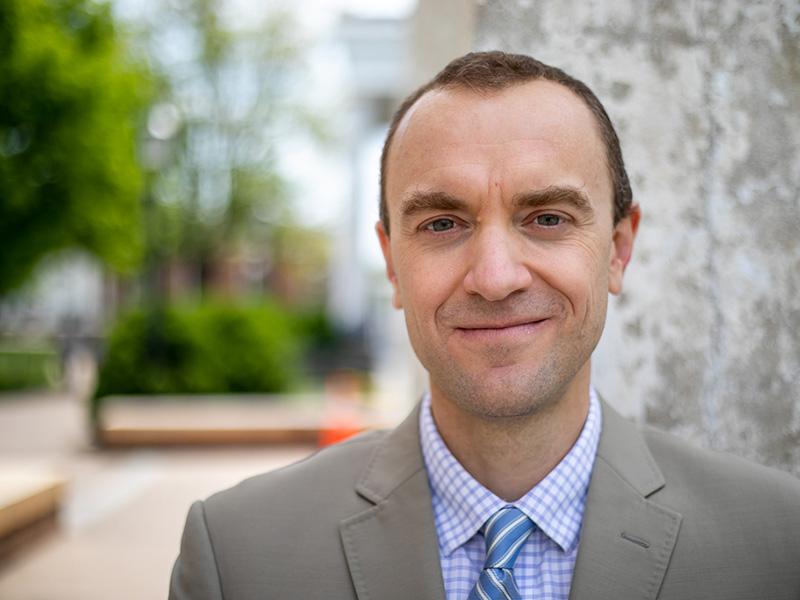UVA Anthropologist Sheds Light on “Good Injuries” and Class Conflict in New Study

A new study by University of Virginia anthropologist David Flood explores how attitudes toward injury in US working-class communities reveal deeper truths about political division in the United States.
Published in Anthropological Quarterly, Flood’s article, “Good Injuries: Embodiment, Temporality, and Collectivity in US Class Conflict,” examines why some white working-class people in the rural South view certain kinds of injury as unfortunate but meaningful expressions of ethical behavior.
Flood’s research is based on several years of ethnographic fieldwork in western North Carolina, including at the Jamestown Bash, a festival known for live music, off-road vehicle events and mud pit competitions. Activities at the Bash often lead to predictable injuries, yet participants regard them as affirmations of care and belonging.
“In this context, the acceptance of risk and even of injury can be a powerful signal that someone is behaving ethically, in the sense that they are prioritizing collective relationships in the present even potentially at the expense of their own health. These are what I call ‘good injuries,’ and they underline how aspects of US class and political division come from distinct visions of social flourishing” Flood said.
The concept challenges mainstream assumptions about harm and care. In many middle-class contexts, taking risks that could lead to injury is seen as irresponsible. But for the individuals Flood interviewed, prioritizing present relationships — even at personal risk — can be more important than protecting one’s health. Importantly, it is not that people actively pursue injury but rather that their risk is an acceptable trade-off. And when injuries occur as a direct result of these ethical calcuations, they’re often conspicuously celebrated.
One example Flood highlights is a driver who was knocked unconscious during a mud pit run. When he came to, the crowd gave him a standing ovation. “It was a testament to the collective appreciation of his willingness to engage in a risky behavior that created the conditions for collective good feeling,” Flood said.
Flood argues that differing views on risk and responsibility contribute to class conflict and misunderstanding, particularly when middle-class observers interpret working-class behaviors through their own ethical frameworks.
“These conflicts often happen before politics even enter the conversation,” Flood said. “They’re rooted in everyday assumptions about what it means to be a good person. We saw this play out in stark terms during the height of the coronavirus pandemic in particular, when social distancing — exactly the prioritization of future health over current relationships — became a political flashpoint along class lines, but these differences are widespread as a basis of political division.”
Christa Acampora, Buckner W. Clay Professor of Philosophy and Dean, College and Graduate School of Arts & Sciences, praised the research as an example of the College’s commitment to advancing public understanding through humanistic inquiry.
“This thoughtful, field-based research illuminates how people live and relate in diverse cultural contexts,” Acampora said. “By examining how people find meaning, connection, and care in unexpected places, Professor Flood deepens our understanding of human experience and sheds new light on the social dynamics that shape our world.”
Flood’s study is part of a larger book project examining class, care and conflict in contemporary America. He also directs UVA’s Catalyst Program, which helps undergraduates connect liberal arts education with real-world challenges.
Reflecting on his findings, Flood said, “It’s easy to assume that people are careless because they don’t prioritize the future. But there’s a developed working-class ethics in choosing to be with others now. The future isn’t the only place hope lives.”







